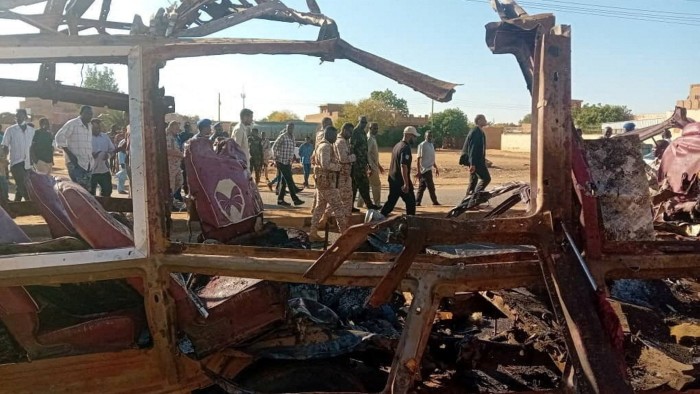Unlock the Editor’s Digest for free
Sudan is facing a critical situation that could lead to the country breaking apart or becoming a “failed state”, warned the US special envoy to Sudan, Tom Perriello. Foreign powers are fueling a war that has already displaced millions of people and deepened a humanitarian crisis of massive proportions.
The conflict, which erupted last April between the Sudanese Armed Forces and the Rapid Support Forces (RSF), has resulted in the displacement of at least 11 million people, with 3 million fleeing to neighboring countries. Perriello highlighted the dire situation, stating that there are no clear good or bad sides in the conflict, only varying degrees of harm inflicted on the Sudanese people.
The RSF, backed by the UAE, has been accused of carrying out “ethnic cleansing and crimes against humanity”. The involvement of external actors, including Islamist factions and Russia, has further complicated the situation. Perriello pointed out that the Emiratis deny taking sides, but evidence suggests they are supplying arms to the RSF and receiving shipments of gold in return.
The Sudanese government, led by General Abdel Fattah al-Burhan, has also been criticized for exacerbating the conflict by denying food aid to RSF-controlled areas. This has led to accusations of using starvation as a weapon of war and pushing the country towards partition.
Perriello emphasized the urgent need for a revival of the aborted “democratic transition” that began after the ousting of dictator Omar al-Bashir in 2019. He warned that a partition of the country would only lead to further instability and prolonged conflict, potentially lasting decades.
The situation in Sudan is further complicated by the potential for the worst famine since the 1980s, as highlighted by the UN. Any further partition of the country, which split once in 2011 with the creation of South Sudan, would make it even more challenging to deliver aid to those in need.
In conclusion, the crisis in Sudan requires immediate and concerted international efforts to prevent further escalation of violence and suffering. The stakes are high, and the consequences of inaction could be catastrophic for the region. It is imperative that all parties involved work towards a sustainable peace process that prioritizes the well-being of the Sudanese people above all else.







